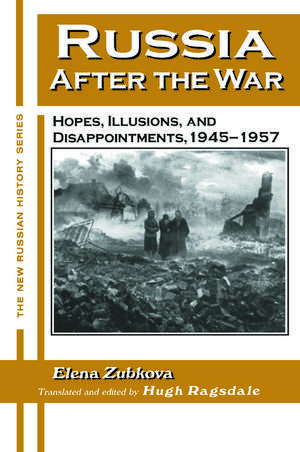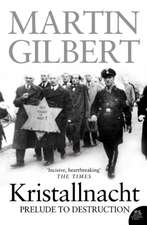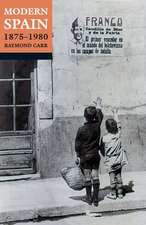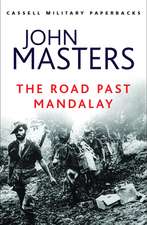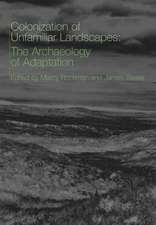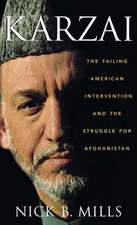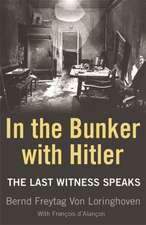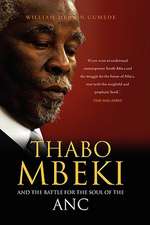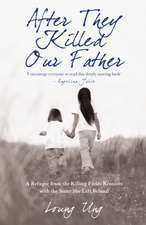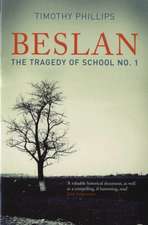Russia After the War: Hopes, Illusions and Disappointments, 1945-1957
Autor Elena Zubkova, University of Alabamaen Limba Engleză Paperback – 31 oct 1998
| Toate formatele și edițiile | Preț | Express |
|---|---|---|
| Paperback (1) | 453.89 lei 6-8 săpt. | |
| Taylor & Francis – 31 oct 1998 | 453.89 lei 6-8 săpt. | |
| Hardback (1) | 1000.27 lei 6-8 săpt. | |
| Taylor & Francis – 31 oct 1998 | 1000.27 lei 6-8 săpt. |
Preț: 453.89 lei
Nou
Puncte Express: 681
Preț estimativ în valută:
86.85€ • 90.87$ • 72.15£
86.85€ • 90.87$ • 72.15£
Carte tipărită la comandă
Livrare economică 02-16 aprilie
Preluare comenzi: 021 569.72.76
Specificații
ISBN-13: 9780765602282
ISBN-10: 0765602288
Pagini: 250
Ilustrații: photographs, bibliography, index
Dimensiuni: 152 x 229 x 18 mm
Greutate: 0.41 kg
Ediția:1
Editura: Taylor & Francis
Colecția Routledge
Locul publicării:Oxford, United Kingdom
ISBN-10: 0765602288
Pagini: 250
Ilustrații: photographs, bibliography, index
Dimensiuni: 152 x 229 x 18 mm
Greutate: 0.41 kg
Ediția:1
Editura: Taylor & Francis
Colecția Routledge
Locul publicării:Oxford, United Kingdom
Cuprins
Introduction; Part 1 Strategies of Survival; Chapter 1 The Social Psychology of the War; Chapter 2 The Victory and the Victors; Chapter 3 “How to Live After the War?”: The Conflict of Expectation and Reality; Chapter 4 The Hungry Years: The Famine of 1946–1947; Chapter 5 The Currency Reform of 1947: The Views from Above and Below; Part 2 The Illusion of Liberalization; Chapter 6 The State and the Peasant: Village Antagonism to the Collective Farm; Chapter 7 Religion and Politics: The Revival of Religions Belief; Chapter 8 The Political Temper of the Masses, 1945–1948; Chapter 9 “Something Must Be Done”: The Intelligentsia and the Intellectual Mavericks; Part 3 Repression; Chapter 10 “The Situation Doesn’t Change”: The Crisis of Postwar Expectations; Chapter 11 The Birth of the Anti-Stalinist Youth Movement; Chapter 12 The Struggle with Dissent; Chapter 13 The Wave of Repression, 1949–1953; Chapter 14 The Evolution of Public Opinion: “Whose Fault Is It?”; Part 4 The Thaw; Chapter 15 Without Stalin: The New Public Atmosphere; Chapter 16 The Repudiation of the GULAG; Chapter 17 Turning to the Individual: The Paths from Above and Below; Chapter 18 The Decision on the Cult of Personality and Its Social Impact; Chapter 19 Public Opinion and the “Hungarian Syndrome”; con Conclusion;
Notă biografică
Elena Zubkova is a senior research fellow at the Institute of Russian History, Russian Academy of Sciences. She received her degrees from the Moscow State Historical Archival Institute (B.A.) and the Institute of Russian History (Ph.D.) and has worked at the Moscow State Archive of the October Revolution (now GARF). Dr. Zubkova has published many essays and articles on postwar history, and the book Society and Reforms, 1945–1964 (in Russian; Rossiia molodaia, 1993)., Hugh Ragsdale studied at the University of North Carolina (A.B.) and the University of Virginia (M.A., Ph.D.). He has done postgraduate study at Moscow State University and the Soviet/Russian Academy of Sciences and has worked in the foreign affairs archives of London, Paris, Vienna, Copenhagen, and Stockholm, as well as Moscow. His most recent book is The Russian Tragedy: The Burden of History (M.E. Sharpe, 1996).,
Descriere
The years of late Stalinism are one of the murkiest periods in Soviet history, best known to us through the voices of Ehrenburg, Khrushchev and Solzhenitsyn. This history of Russia from the end of the war to the Thaw is by a respected young historian, who draws upon newly-opened archives.
